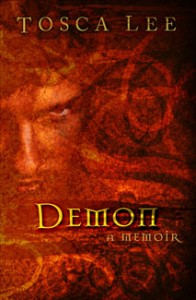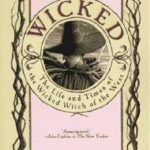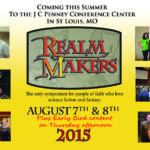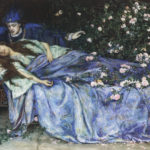What Gives You Nightmares?
Last Friday, our guest blogger, author Wayne Thomas Batson, wrote about fantasy as a vehicle for soul searching. His remarks reminded me of what I read from Anne Rice when she announced her conversion (since revoked) to the Catholic faith.
As she states, even in her vampire novels she was exploring the spiritual:
Much could be said, and has been said, about all of my works. I would like to say that the one thing which unites them is the theme of the moral and spiritual quest
Apparently the search continues in the second book of her angel series Of Love And Evil.
Interesting!
I have one friend who refuses to read Tosca Lee‘s Demon: A Memoir because it is too real. After all, demons exist. Instead, this friend prefers to read and write about make-believe monsters — vampires and zombies, selkies, werewolves, and the like.All those creatures are too horrible for me, at least if they take center stage in the story. I saw an old black and white version of Frankenstein’s Monster when I was a kid, and had nightmares for weeks. It was months before I could go downstairs to our basement level bedrooms without imagining a monster waiting in the dark.
Ever since, I’ve preferred something akin to the mythical creatures who existed in a pretend place and a pretend time — balrogs and orcs, Calormenes and Tash, bisonbecks and blimmets.
The greater distance allows me to examine the war between good and evil, much as Anne Rice’s vampires apparently allowed her to look at the same:
Interview with the Vampire, the novel that brought me to public attention, is about the near despair of an alienated being who searches the world for some hope that his existence can have meaning. His vampire nature is clearly a metaphor for human consciousness or moral awareness. The major theme of the novel is the misery of this character because he cannot find redemption and does not have the strength to end the evil of which he knows himself to be a part.
I have to admit, for years I never considered the possibility that horror had anything to do with an exploration of the spiritual. I looked at stories with vampire protagonists as a glorification of evil.
Anne Rice says it’s not so, at least in her stories:
Evil is never glorified in these books; on the contrary, the continuing battle against evil is the subject of the work. The search for the good is the subject of the work.
The battle against evil is the subject of fantasy, too, but why is horror, or supernatural suspense, as we call it in Christian fiction, so much darker? Why does it induce nightmares in some of us and make others shudder so much we’d just as soon read something else, thank you very much!
I can only postulate answers to that question because I fall into that latter group. Hence, I’m speaking from what I think — which dictates what I decide to read, or rather, not to read — so I’m aware my perception might be completely skewered. Nevertheless, here’s my speculation: could it be the darkness of dark literature comes from the point of view — such as might have occurred had Lord of the Rings been written from Saurman’s perspective or The Lion, The Witch, And The Wardrobe from the standpoint of the witch?
Mind you, I’m not suggesting something like Wicked by Gregory Maguire that apparently told the story of the Wizard of Oz from the perspective of the Wicked Witch of the West. From what I have heard, her evil nature is softened if not explained away by a look at her troubled youth and the roots of her self-loathing.
On second thought, perhaps that one actually is a good illustration, though I suspect less dark than what I had in mind because Oz is so firmly rooted in our cultural imagination as pretend. Interestingly, Publisher’s Weekly called it a “meditation on good and evil, God and free will.”
So I wonder. Am I right that horror or supernatural suspense explores evil and good from a different perspective than fantasy, or is there some other major difference I’m missing?
And in the end, does it give you nightmares? 😕









































Dark stories take minds to dark places. Sometimes I feel that is needed as a… I want to say “reality check” but more accurately the exaggeration of darkness in those sorts of tales seemed to pull my naivety into greater awareness of the dark. I prefer to hold “the world is good” perspective and drift too far into positive distortions of the world we live in… but lately that optimistic bias is hard for me to get to anymore. My paying job is a counselor for abused children. I’ve only done this a few years and I am very sensitive to the darkness theses days and need no reminders of it. I know I’m part of the Kingdom whose victory is already known to be future reality- but it’s painfully not yet here. I have read no horror and can’t even stand to watch the news since I’ve taken this job. The horrors are really out there and more real and prevalent than most people would suspect. I’m reading more fantasy, enjoying the positive perspective of good overcoming evil. I need that now. But I’ve been where my awareness of the battle for Good needed the help of authors like Frank Peretti.
I can see that the Light or Dark tone of the story does have a lot to do with the perspective- which character’s eyes do we see the story from, and how does that character see their world. Do they struggle against external evils, against internal evils, or are they mixed up seeing evil as good and good as evil? When we select the books we read why do we pick them? Do we pick books that resonate with the way we see the world ourselves? Are there others like me that intentionally seek balance? Or do we (as it seems to me most people do) more often reinforce the biases we already hold with the stories we choose to fill our minds with?
I’m also curios about “monsters” and what our monsters are. What do they represent to us? Do we see ourselves as monsters? Are we naturally that way or is it more like a disease we are seeking a cure from? Are the monsters all evil? Should they be? Can they be redeemed? Were they part of the creation of this world or do they come from somewhere else? What are our monsters in our lives? If you can identify that in a real way for your readers you will likely give them nightmares and a lasting impression- I hope that it’s a positive lesson.
Taxes.
Score.
Patrick, you asked some great questions! I suppose monsters can represent different things to different people. I’d say C. S. Lewis saw his dragon in Dawn Treader as what we are without Christ.
I suspect a true monster is evil. However, what do we do with nice monsters such as the hero of Monsters Inc? Should they be isn’t a question we can ask for any other writer, I don’t think. Each writer must make that determination for his own writing, within the parameters of his genre.
Can they be redeemed is an interesting theological dilemma. I think the answer depends on what we say about what they represent. Same with whether they are part of the created world or came from somewhere else.
Wish I had more time for this, Patrick. You’ve given us lots to ponder! Thanks.
Becky
I’m a fan of the new burgeoning Christian horror genre, but I must admit to some doubts about my love for it. First and foremost, the writer needs to take great care that evil, monsters, darkness, etc. never, ever be glorified. That’s what the general marketplace tends to do, and such glorification makes those kinds of stories dangerous, especially when geared toward a young audience.
However, I’ve read some highly skilled authors who can take that darkness and fear of things that go bump in the night and make the light shine all the brighter. By magnifying God’s light and glory and truth in such a way I tend to appreciate it all the more.
These stories are definitely not for the faint of heart, but with a world so desperately fascinated by the supernatural, my hope is that a novel by Mike Dellosso, Eric Wilson, Tim Downs or Robert Liparulo (just to name a few I love) will fall into the right hands and reveal the truth and power of God’s love more than surpasses the evil facade that the enemy portrays in most supernatural literature.
The danger is in just how dark should we go in our reading and our writing. Honestly, I’ve read some stories that make me wonder about the minds that create such tales…
Deena, well said! Yes, I’ll admit, I used to take a hard line against horror because I assumed it did indeed glorify evil. After all, the definition I found, and the one I operated on, was that a story in the horror genre was one that generated horror in the reader.
But isn’t that sometimes needed? Should we not find hell truly horrifying? Should we not see the horror of rebellion against God? So, yes, I’ve come to see the necessity of showing the dark. (By the way, imagine my surprise when a test reader remarked that the second book in my series was “dark.”)
I don’t suppose anyone can answer the question about how dark is too dark except each individual author. For me, dark scenes and evil characters are hard to write because they take me to a place I don’t want to go.
For a reader, I think the decision about how much darkness to allow must be done with much prayer. Dark characters take me with them as they do their evil deeds based on their evil motives. I don’t like being there. I have enough of my own evil to deal with! But others perhaps find such stories instructive for a number of reasons.
Thanks for taking the time to join in the discussion.
Becky
Actually, I’m kind of in the same ballpark as your friend as far as what scares me. LOTR, Narnia, and the like never gave me even an uneasy night’s sleep. But Randy Alcorn’s Ishbane Conspiracy gave me a panic attack that lasted maybe half an hour in the middle of the night. Ever since then, I’ve taken to reading potentially scary things during the day, and preferably around other people (because I had read The Screwtape Letters at a church camp and although it was eerie, I had been fine).
I don’t think it’s that demons are inherently scarier than monsters, but that books like Screwtape and Ishbane and Demon (which I haven’t read yet but really want to) get into a demon’s mind and that is a much more subtle, but far deeper, kind of creepy.
Well, the horror genre has been the genre I have never been able to get into. Christian or Secular.
I have read some Dean Koontz’s books over the years and even his novels are a mixture of sci-fi, mystery, horror, and thriller at the same time.
I’m with Becky about having my own evil to deal with it….instead of reading it in a story.
But, I do think Christian novelists should be write about evil and see if it there is any redemptive value in the context of the story. Or even show the opposite on how evil can take someone totally away from God and have to deal with the consequences of that decision.
Zoe, I think that’s fascinating. I see your point about being in the mind of a demon (though Tosca Lee’s Demon has a human protagonist, so I don’t think it’s quite the same). I guess I feel the purpose is to expose them. In the light they don’t look as scary. Plus, I can’t get away from the truth of Scripture — that God has authority even over the forces of wickedness.
Marion, I’ve never read any of Dean Koontz’s books because I didn’t think I could handle them. Any titles you could recommend?
I guess we each have to decide what kind of story is best for us in our look at evil. If we start with the Bible and read all the rest in light of the truth we find there, I don’t think we can go wrong.
Thanks for the good discussion.
Becky
Right, I think they’re *good* books, especially Screwtape (like I said, I haven’t read Demon yet but I’ve heard it’s awesome). But well, there’s a reason Lewis refused to write a sequel to it despite requests from friends and fans (all he did was a very short story, more like an epilogue, called Screwtape Proposes a Toast). It did weird things to me as a reader; I imagine the effect is magnified for the author. But as I said before, I just read stuff like that during the day now and I’m pretty good.
Becky,
I’ve read about 10 of Koontz’s novels.
My favorites from Dean Koontz are Cold Fire and Strangers.
Cold Fire is Koontz’s take on the Superhero/Savior/Tortured Soul Persona.
Strangers is his big novel and deals with friendships and how people are connected together.
He does quite a bit of moralizing in his novels and has a strong libertarian streak. But, he has included Christian themes in some of his novels.
His book Hideaway deals with nature of evil and has some Christian principles included in the story.
Try one of those three and I would like to know what you think about them.
Marion
kammbia1.wordpress.com
Thanks, Marion, I appreciate the recommendations. I’m such a chicken. But maybe if I use Zoe’s read-by-day method, I can read at least one. 😉 It’s so weird because I had no trouble with Demon or with <Screwtape Letters. As much as I’ve thought about it, I still can’t say I really understand why different ones of us react in such opposite ways.
Thanks so much to all who gave input in this discussion.
Becky
[…] month I wrote an article for Speculative Faith about the horror genre entitled “What Gives You Nightmares?” It was a bit of a reversal for me, as I admitted that I now understand books classified as horror […]
I like creepies, because
it makes me aware I am currently safe from it.
it reminds me how powerful the light is
…well, I’m sick of low-stakes like PBS kids shows
I like the idea that writers delve into the darkness so readers don’t have to.
“Follow the light. Don’t be afraid of the shadows it creates.” ~ Ted Dekker